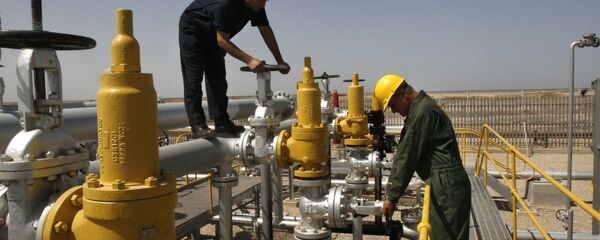Last month, the Joint OPEC-Non-OPEC Ministerial Monitoring Committee (JMMC) said the doors were open for other oil producers, particularly the United States, to participate in the deal to curtail oil production agreed in late November.
However, US producers are keen to increase production in spite of the effect it may have on prices, Sara Emerson of US-based consultants ESAI Energy told RIA Novosti.
"They don't want to cut their volume of production. I think that they will have a good relationship with OPEC countries, they will listen to each other, but no more than that," Emerson said.
On Wednesday, Qatari Oil Minister Mohammed Saleh Sada said that so far, the level of adherence to the deal stands at 94 percent among OPEC producers, and 50 percent among non-cartel producers.
Non-OPEC producers Azerbaijan, Bahrain, Brunei, Equatorial Guinea, Kazakhstan, Malaysia, Mexico, Oman, Russia, Sudan and South Sudan have agreed to take part in the agreement, and cut production by 558,000 barrels per day.
The agreement has buoyed the oil price, which began to rally at the end of November after OPEC announced its readiness to reach a deal.
On Wednesday, Brent crude was trading at $55.90 per barrel, an increase of around 20 percent since mid-November. However, the price decreased by 0.76 percent in comparison with the previous day amid concerns about increased crude oil stockpiles in the US.
According to a survey of analysts polled ahead of weekly inventory reports from the American Petroleum Institute and the US Energy Information Administration, crude stocks increased by an estimated 3.3 million barrels last week, their seventh weekly increase.




